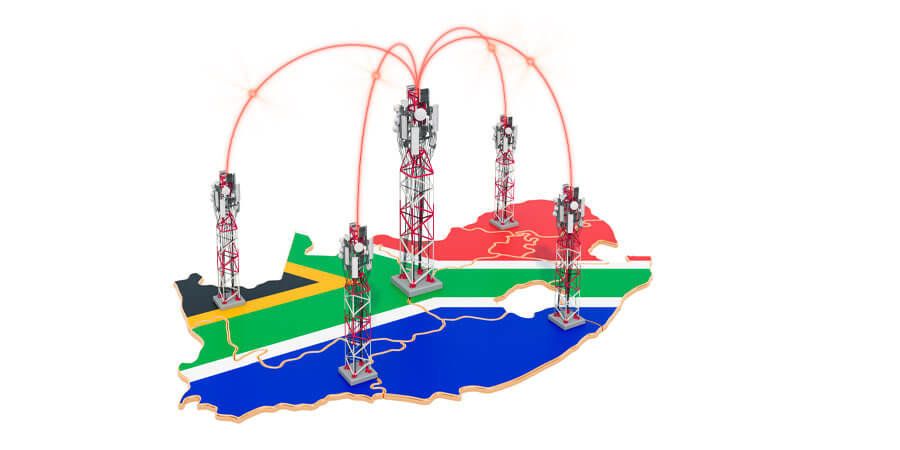Africa’s telecom infrastructure is undergoing rapid transformation as the continent strives to bridge the digital divide, improve connectivity, and foster economic growth. As mobile and internet penetration rates rise, Africa is becoming a dynamic hub for digital innovation. However, the development of this critical infrastructure involves navigating a complex landscape of partnerships with global telecom providers and technology companies.
China's Leading Role in Africa's Telecom Development
One of the most significant influences on Africa's telecom growth has been the involvement of Chinese companies like Huawei and ZTE. These companies have played a pivotal role in helping many African nations establish and expand their telecommunications networks. Offering advanced technology and cost-effective solutions, China has become a key partner for countries looking to accelerate their digital transformation.
Huawei, in particular, has been instrumental in rolling out 4G and 5G networks, helping nations build the backbone for faster internet connectivity and broader mobile access. China’s ability to provide not only technology but also financing has made it an attractive partner for African governments looking for scalable and affordable telecom solutions.
Diversifying Telecom Partnerships
While China has been a dominant player, Africa is keen to diversify its telecom partnerships. Countries across the continent are working with a variety of international players to meet their specific needs. American, European, and local African companies are all contributing to the development of infrastructure, providing competition and driving innovation.
African countries recognize that diversifying their partnerships allows for greater flexibility in terms of technology choices, pricing, and service delivery. By engaging multiple global telecom companies, African governments can ensure that they are getting the best deals while also fostering competitive markets that benefit consumers.
The Rise of Local Telecom Innovation
Africa’s telecom infrastructure development is not solely dependent on foreign partners. Local telecom providers are stepping up to play a significant role in shaping the continent’s digital future. Companies like MTN, Safaricom, and Airtel Africa are leading the charge in expanding mobile coverage and introducing innovative digital services that cater to the unique needs of African populations.
These companies are not only expanding coverage but also investing in value-added services such as mobile money, fintech solutions, and digital education platforms. Mobile money, in particular, has revolutionized the financial landscape in Africa, with services like M-PESA leading the way in providing millions of unbanked individuals access to financial services.
Government Initiatives and Infrastructure Investments
In addition to partnerships with global telecom players, African governments are also taking an active role in driving telecom infrastructure growth. Initiatives aimed at expanding broadband access, improving regulatory frameworks, and promoting digital inclusion are being implemented across the continent.
Governments are investing in both physical infrastructure, such as fiber optic networks, and digital services to create a more connected population. Public-private partnerships are playing a critical role in financing large-scale infrastructure projects, and international development organizations are supporting these efforts with funding and technical expertise.
Building a Sustainable Digital Future
As Africa's telecom sector continues to grow, the focus is also shifting towards sustainability. Governments and telecom companies alike are exploring ways to build environmentally friendly networks, reduce carbon emissions, and improve energy efficiency. Solar-powered mobile towers and sustainable energy solutions are being deployed to ensure that telecom growth aligns with the continent's broader sustainability goals.
Moreover, telecom companies are increasingly aware of the importance of cybersecurity and data privacy. As digital infrastructure expands, the need for secure and resilient networks becomes even more pressing. Many African nations are adopting international best practices in cybersecurity and data protection to safeguard their digital assets and ensure that users can trust the infrastructure being built.
Africa’s telecom infrastructure is at an exciting juncture, with tremendous opportunities for growth and innovation. The continent’s telecom landscape is being shaped by a mix of global partnerships, local innovation, and government initiatives. As African nations continue to expand and modernize their networks, they are positioning themselves to unlock new economic opportunities, empower citizens through digital services, and drive sustainable development.
The future of Africa’s telecom industry will be defined by its ability to harness these partnerships and innovations, ensuring that the continent remains at the forefront of global digital transformation. As connectivity increases and infrastructure develops, Africa stands poised to become a major player in the global digital economy.








